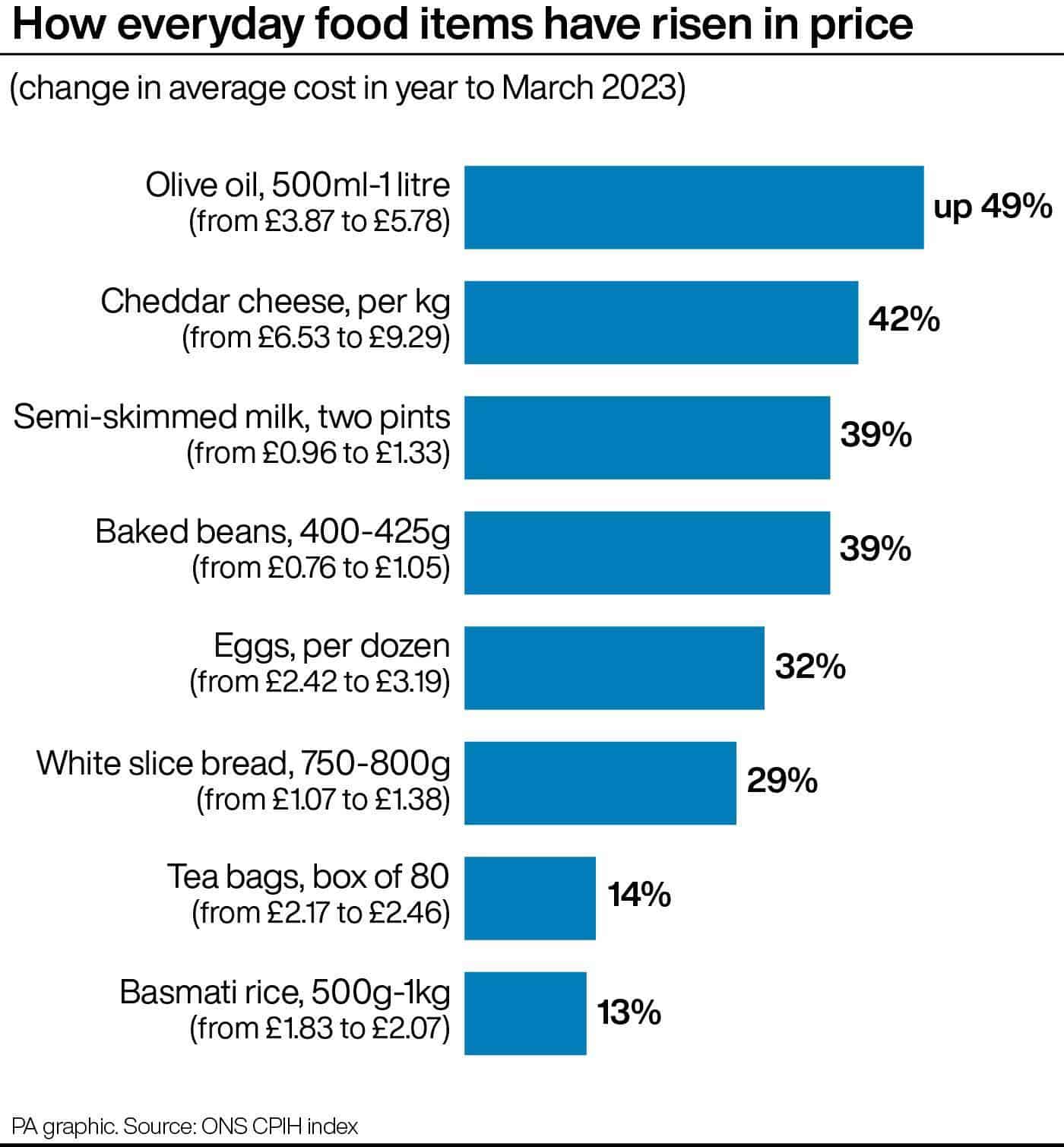Inflation has eased back to its lowest level since March last year, but remained higher than expected as food prices continued to rise at a near record pace.
The Office for National Statistics (ONS) said that Consumer Prices Index (CPI) inflation fell to 8.7 per cent in April, down from 10.1 per cent in March, as last year’s energy price hikes were not repeated.
But it was higher than forecast by economists, who had pencilled in a drop to 8.2 per cent in April.
ONS chief economist Grant Fitzner said: “The rate of inflation fell notably as the large energy price rises seen last year were not repeated this April, but was offset partially by increases in the cost of second-hand cars and cigarettes.
“However, prices in general remain substantially higher than they were this time last year, with annual food price inflation near historic highs.”
The figures showed food CPI inflation at 19.3 per cent, down only slightly on March’s eye-watering 19.6 per cent.
Chancellor Jeremy Hunt said: “Although it is positive that it is now in single digits, food prices are still rising too fast.
“So as well as helping families with around £3,000 of cost-of-living support this year and last, we must stick resolutely to the plan to get inflation down.”

Liz Edwards, editor-in-chief of personal finance comparison site Finder.com, added: “Despite inflation falling from 10.1 per cent in March to 8.7 per cent in April, the UK economy still has a long way to go until it’s out of the woods, particularly if the government is still hoping to reach its target of halving inflation by the end of 2023.
“Although inflation has finally started to waver, the bad news is that the cost of food and non-alcoholic beverages has only fallen very slightly, with the 12 month rate falling from 19.2 per cent in March to 19.1 per cent in April. These rates are still unprecedentedly high, and this will continue to put a huge amount of pressure on the disposable income of UK households.
“The fall in consumer price inflation announced today could also indicate that the most recent increase to the UK base rate might have been the last. This month we saw the Bank of England’s Monetary Policy Committee raise the base rate to 4.5 per cent, the highest it’s been in almost 15 years. However, it now seems as though the Bank of England may have finally won a round in its battle against sticky inflation, and as a result we could now see rates hold, or even fall, in the next MPC meeting.
“Despite costs generally starting to seem less bleak for the British consumer, households shouldn’t start loosening their purse strings just yet. With mortgage rates on the rise, the cost of food still extraordinarily high, and real wages falling, consumers will need to continue being as savvy as they can with their personal finances.”
Related: UK companies flock to Germany to get foothold in Europe

